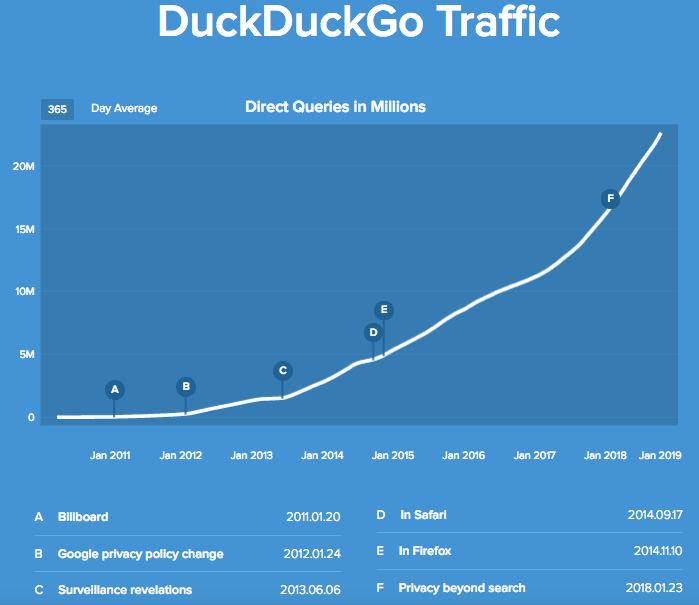The burning question of Internet privacy is fraught with nuances that very few average web users like you and me can understand. For example, did you know that both companies follow a very similar revenue model but only one of them offers personal privacy on the Internet? Let me explain…
DuckDuckGo serves advertisements based on one single criterion alone – keywords. If you search for ‘hairdryers’, for example, you’ll notice that you only see ads for hairdryers and related things. Maybe shampoos or grooming kits, at the most. That’s where they draw the line.
Google is vastly different. There’s a “creepy line” that Google Chairman Eric Schmidt once said the company won’t cross, but ask any Google user and they’ll tell you that line was crossed long, long ago. Ever felt weird about the fact that a new website you visit is showing ads for sneakers that you Googled last week, even though the site itself was totally unrelated, like stock market analysis or pet food? That’s the line, crossed.
DuckDuckGo, on the other hand, doesn’t track your presence wherever you go. Look at how deeply companies like Google and Facebook track your online activities.
That’s not cool, because they don’t really need all that browsing information about you. The reason they do it is so they can expand their top lines by selling highly targeted advertising opportunities to companies that are willing to pay for it. Why else would you see a sneaker ad on a financial services website? The only thing they really need is what DuckDuckGo also uses – keyword statistics; good old anonymous data that is not used to follow you around the web like a shameless and overly aggressive virtual salesperson.
Switching to DuckDuckGo not only enhances your privacy right away, but it also gives you access to tools to avoid being constantly tracked by “Google’s massive ad networks, embedded across millions of sites and apps,” according to DuckDuckGo CEO Gabriel Weinberg
The reason DuckDuckGo has been so successful (22,938,106,279 searches to date) is that anyone who is sick and tired of being tracked naturally gravitates towards it. Look at this graph showing how DuckDuckGo traffic has grown over the years amidst privacy concerns:

There are three things that DuckDuckGo offers:
-
Block advertising trackers.
-
Keep your search history private.
-
Take control of your personal data.
If you’re interested in this, start using DuckDuckGo today. You can keep using Google Chrome if you like, but be sure to add the DuckDuckGo extension to Chrome by going to this link and clicking ‘Add to Chrome.’
Editor’s Note: 1redDrop.com is not being compensated by DuckDuckGo in any way for writing or publishing this article, and neither are any of our employees. We are merely spreading the word about online privacy so you can decide whether or not your personal data should be under your control alone.



